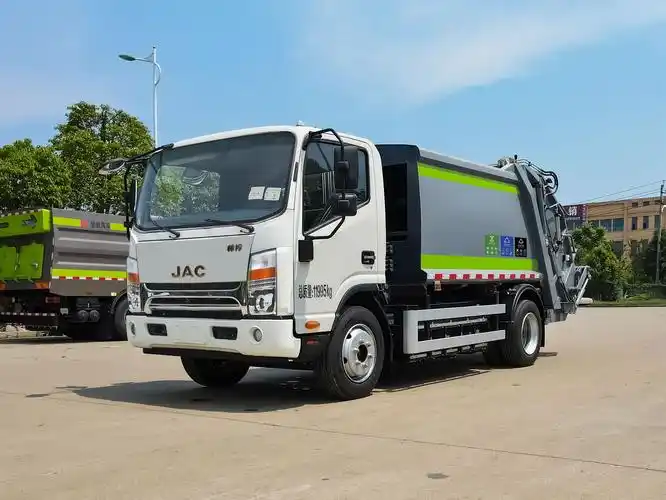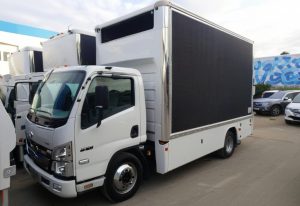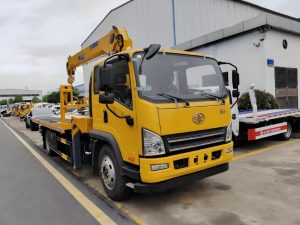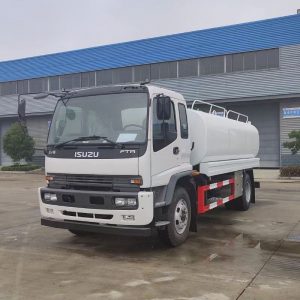Table of Contents
ToggleHow to Choose a Work Truck
Choosing the right work truck can feel like trying to find a needle in a haystack, especially with so many options available. Whether you’re a contractor, a delivery service, or just need a reliable vehicle for your business, the right truck can make all the difference. So, how do you navigate this maze of choices? Let’s break it down step by step.
Understanding Your Needs
Before you even think about brands or models, it’s crucial to understand what you actually need from a work truck.
Assessing Your Business Requirements
Start by asking yourself some key questions: What will you be using the truck for? Will you be hauling heavy equipment, or do you just need something to transport tools? Knowing your primary use will help narrow down your options significantly. For instance, if you’re in construction, you might need a truck that can handle heavy loads and rough terrain. On the other hand, if you’re in the service industry, a smaller, more fuel-efficient truck might be more appropriate.
Evaluating Load Capacity
Load capacity is another critical factor. If you’re in construction, you might need a truck that can handle several thousand pounds. On the other hand, if you’re in landscaping, a lighter truck might suffice. Always check the manufacturer’s specifications to ensure the truck can handle your typical load. Remember, overloading a truck can lead to serious safety issues and costly repairs down the line.

Types of Work Trucks
Now that you have a clearer idea of your needs, let’s explore the different types of work trucks available.
Pickup Trucks
Pickup trucks are versatile and can handle a variety of tasks. They’re great for hauling tools and materials, and many models offer impressive towing capacities. Plus, they often come with a comfortable cab for those long drives. If you’re looking for a balance between utility and comfort, a pickup truck might be your best bet.
Cargo Vans
If you need to transport goods securely, cargo vans might be your best bet. They offer a large, enclosed space that protects your items from the elements. Plus, they’re often easier to maneuver in urban settings. Cargo vans are particularly popular among delivery services and tradespeople who need to keep their tools and materials safe and organized.
Box Trucks
Box trucks are ideal for businesses that need to transport larger items. With a spacious cargo area, they can handle everything from furniture to appliances. Just make sure you’re comfortable driving a larger vehicle! Box trucks often come with a lift gate, making it easier to load and unload heavy items.
Flatbed Trucks
Flatbed trucks are perfect for hauling oversized loads. If you frequently transport construction materials or equipment, a flatbed might be the way to go. Just keep in mind that they offer less protection from the elements. Flatbeds are great for transporting items that don’t fit neatly into a box, like lumber or machinery.
Key Features to Consider
Once you’ve narrowed down the type of truck you need, it’s time to look at the features that matter most.
Engine Performance
A powerful engine can make a world of difference, especially if you’re hauling heavy loads. Look for trucks with robust engines that can handle your specific needs without straining. A truck with a V8 engine, for example, might be ideal for heavy-duty tasks, while a V6 could suffice for lighter jobs.
Fuel Efficiency
In today’s economy, fuel efficiency is more important than ever. A truck that guzzles gas can quickly eat into your profits. Look for models that offer good mileage, especially if you’ll be driving long distances. Hybrid and electric options are becoming more popular, offering a greener alternative that can save you money on fuel in the long run.
Safety Features
Safety should never be an afterthought. Look for trucks equipped with features like anti-lock brakes, stability control, and advanced airbag systems. These can help protect you and your cargo on the road. Additionally, consider trucks with rearview cameras and parking sensors, which can make maneuvering in tight spaces much easier.
Technology and Connectivity
In our tech-driven world, having a truck with modern technology can be a game-changer. Features like GPS navigation, Bluetooth connectivity, and backup cameras can make your work life a lot easier. Some trucks even come with built-in Wi-Fi, allowing you to stay connected while on the go.
Budgeting for Your Work Truck
Now that you know what you need, let’s talk about the money side of things.
Initial Costs
The initial cost of a work truck can vary widely based on the type and features. Set a budget that includes not just the purchase price but also taxes, registration, and any additional fees. It’s essential to have a clear understanding of your financial limits before you start shopping.
Long-term Expenses
Don’t forget about long-term expenses! Maintenance, insurance, and fuel costs can add up quickly. Make sure to factor these into your overall budget to avoid any surprises down the road. For instance, a truck with a higher initial cost might save you money in the long run if it has better fuel efficiency and lower maintenance costs.
New vs. Used Work Trucks
You might be wondering whether to buy new or used. Each option has its pros and cons.
Pros and Cons of Buying New
Buying new means you’ll have the latest features and a full warranty. However, new trucks can be significantly more expensive, and they depreciate quickly. If you plan to keep the truck for many years, the initial investment might be worth it.
Pros and Cons of Buying Used
Used trucks can save you a lot of money upfront, but you might miss out on the latest technology and warranties. Plus, you’ll need to be extra diligent about checking the vehicle’s history and condition. A certified pre-owned truck can be a great compromise, offering some of the benefits of a new vehicle at a lower price.
Test Driving and Inspection
Before making a final decision, it’s essential to test drive and inspect the truck.
What to Look for During a Test Drive
When you take a truck for a spin, pay attention to how it handles. Does it feel stable? Are there any strange noises? Make sure to test it under conditions similar to what you’ll be using it for. If you plan to drive in the city, test it in traffic. If you’ll be on the highway, take it for a spin at higher speeds.
Importance of a Pre-Purchase Inspection
If you’re buying used, consider getting a pre-purchase inspection from a trusted mechanic. This can help identify any hidden issues that could cost you down the line. A good mechanic will check the engine, brakes, tires, and other critical components to ensure the truck is in good shape.
Financing Your Work Truck
Once you’ve found the right truck, it’s time to think about financing. This step is crucial because it can significantly impact your overall budget and cash flow.
Loan Options
There are various loan options available, from traditional bank loans to financing through the dealership. Each option has its pros and cons, so it’s essential to do your homework.
Traditional Bank Loans
Traditional bank loans often offer competitive interest rates, especially if you have a good credit score. However, the application process can be lengthy, and you may need to provide extensive documentation. If you’re looking for a straightforward loan with clear terms, this might be the way to go.
Dealership Financing
Many dealerships offer financing options directly through their sales departments. This can be convenient, as you can often complete the entire process in one place. However, be cautious—dealership financing can sometimes come with higher interest rates. Always compare the dealership’s offer with other financing options to ensure you’re getting the best deal.
Credit Unions
Credit unions can be a fantastic alternative to traditional banks. They often offer lower interest rates and more personalized service. If you’re a member of a credit union, it’s worth checking their loan options before making a decision.
Leasing vs. Buying
Another important consideration is whether to lease or buy your work truck. Each option has its advantages and disadvantages.
Leasing
Leasing can be a good option if you want lower monthly payments and the ability to drive a new truck every few years. This is particularly appealing for businesses that rely on the latest technology and features. However, keep in mind that at the end of the lease term, you won’t own the vehicle, and there may be mileage limits and wear-and-tear fees.
Buying
Buying gives you ownership and the freedom to modify the truck as you see fit. You won’t have to worry about mileage limits, and once the loan is paid off, you’ll have no monthly payments. However, the initial costs are typically higher, and you’ll be responsible for all maintenance and repairs.
Maintenance and Longevity
Once you’ve secured your work truck, it’s essential to keep it in top shape to ensure longevity and reliability.
Regular Maintenance Tips
Regular maintenance is key to extending the life of your truck. Follow the manufacturer’s service schedule, and don’t ignore warning lights or strange noises. Here are some essential maintenance tips:
- Oil Changes: Regular oil changes are crucial for engine health. Check your owner’s manual for the recommended intervals.
- Tire Care: Keep an eye on tire pressure and tread depth. Properly inflated tires improve fuel efficiency and handling.
- Brake Inspections: Regularly check your brakes to ensure they’re functioning correctly. This is vital for safety, especially if you’re hauling heavy loads.
- Fluid Levels: Regularly check and top off fluids, including coolant, brake fluid, and transmission fluid.
Choosing a Reliable Mechanic
Finding a trustworthy mechanic can save you a lot of headaches. Look for someone who specializes in work trucks and has good reviews from other business owners. A reliable mechanic will not only help you with routine maintenance but can also catch potential issues before they become significant problems.
Conclusion
Choosing the right work truck doesn’t have to be overwhelming. By understanding your needs, exploring your options, and considering key features, you can find a truck that fits your business perfectly. Remember to budget wisely, test drive thoroughly, and maintain your vehicle for longevity.
In the end, the right work truck is more than just a vehicle; it’s an investment in your business. It’s the tool that will help you get the job done, transport your goods, and keep your operations running smoothly. So take your time, do your research, and make a choice that will serve you well for years to come. With the right truck by your side, you’ll be ready to tackle any job that comes your way!







